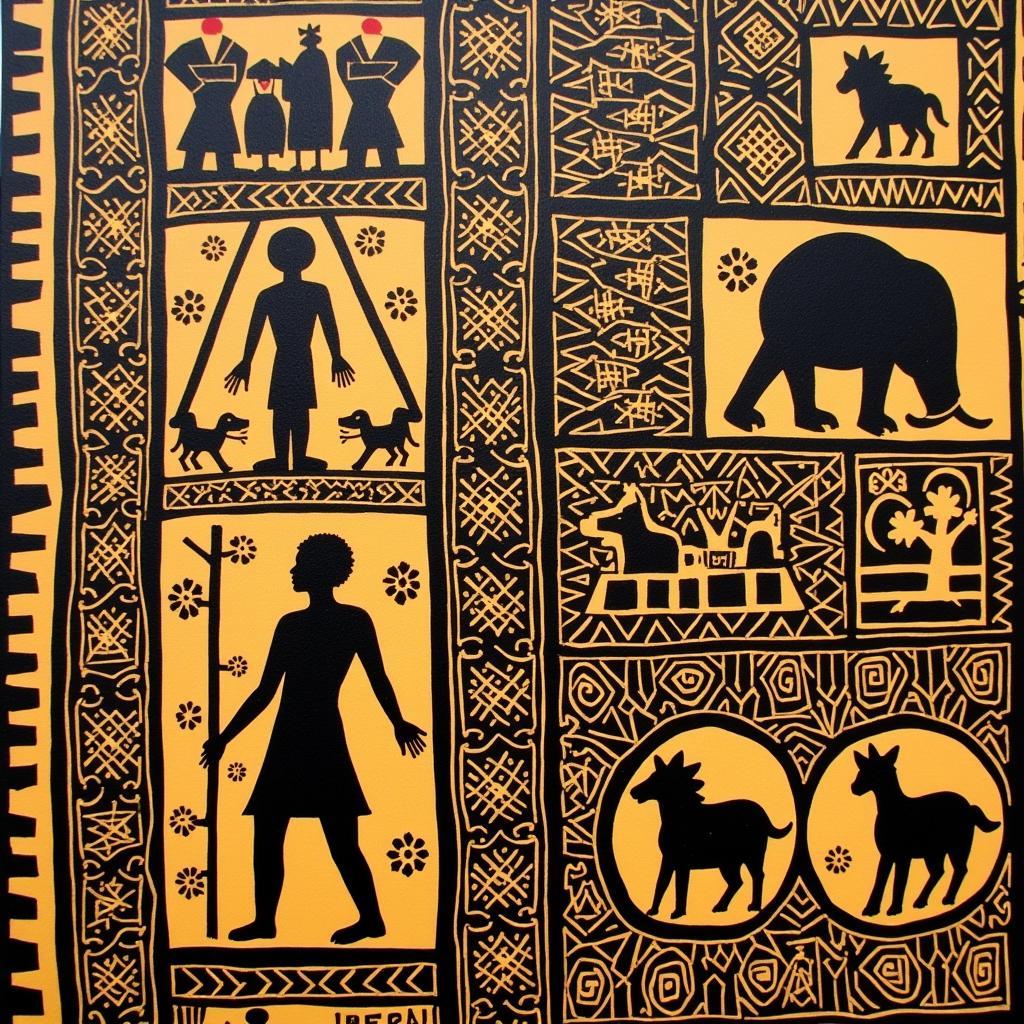Unraveling the African Eve Theory: Tracing Humanity’s Origins
The African Eve Theory, also known as the Mitochondrial Eve hypothesis, proposes that all living humans share a common female ancestor who lived in Africa roughly 200,000 years ago. This theory doesn’t suggest she was the only woman alive at the time, but rather that her mitochondrial DNA (mtDNA) is the only lineage that has survived to the present day. This intriguing concept has revolutionized our understanding of human evolution and sparked considerable debate. Let’s delve deeper into the evidence, implications, and controversies surrounding this fascinating theory.
Exploring the Mitochondrial Eve Hypothesis: A Genetic Journey
The African Eve theory rests on the unique properties of mitochondrial DNA. Unlike nuclear DNA, which is inherited from both parents, mtDNA is passed down exclusively from mother to child. This maternal inheritance allows scientists to trace lineages back through time by analyzing mutations in mtDNA. These mutations accumulate at a relatively constant rate, acting as a molecular clock. By comparing mtDNA from diverse populations, researchers identified Africa as the source of the oldest and most diverse lineages, suggesting an African origin for modern humans. This discovery lends credence to the idea of an African ancestor, the “Mitochondrial Eve,” whose mtDNA persists in all of us today. This journey through our genetic past helps us understand where we come from and how we’re all connected. For another intriguing exploration of African history, consider the discussion about our african ancestors of human beings history discussion.
What does the African Eve Theory Imply about Human Migration?
The African Eve theory supports the “Out of Africa” hypothesis, which posits that modern humans originated in Africa and then migrated to other parts of the world, replacing archaic human populations. This theory challenges the multiregional hypothesis, which suggests that modern humans evolved independently in different regions. The genetic evidence from mtDNA strongly favors the Out of Africa model, indicating a single origin and subsequent dispersal of our species. The theory implies successive waves of migration out of Africa, shaping the genetic diversity we see across the globe today.
Addressing Common Misconceptions about African Eve
Was Mitochondrial Eve the first woman?
No, the African Eve theory doesn’t claim that Mitochondrial Eve was the only woman alive at the time. Many other women lived alongside her, but their mtDNA lineages have been lost through genetic drift – a random process where some genetic variants become more or less common over time. Mitochondrial Eve simply represents the most recent common ancestor through the maternal line.
Is the African Eve theory controversial?
While the core principles of the African Eve theory are widely accepted within the scientific community, some aspects, such as the precise timing and location of Mitochondrial Eve, are still debated. New research continually refines our understanding of human evolution, adding nuances to the existing narrative.
“The African Eve theory offers a powerful lens through which to examine our shared human heritage,” explains Dr. Anika Nkosi, a paleoanthropologist at the University of Dar es Salaam. “It highlights the deep connections between all humans, regardless of our current geographic location or cultural background.”
The Ongoing Search for Human Origins
The African Eve theory is just one piece of the puzzle in the ongoing quest to understand human origins. Researchers are constantly exploring new avenues of genetic and archaeological research to further refine our understanding of our evolutionary history. For a captivating look at the African grey parrot’s mimicry abilities, see african grey parrot mimicking. Studies of ancient DNA, combined with fossil discoveries and advanced dating techniques, continue to provide valuable insights into the complex tapestry of human evolution.
Conclusion: The African Eve Theory and Our Shared Ancestry
The African Eve theory provides compelling evidence for a shared human ancestry rooted in Africa. It emphasizes the interconnectedness of humanity and offers a profound perspective on our journey as a species. This theory, though constantly being refined by ongoing research, remains a cornerstone of our understanding of human evolution. The search for our origins continues, driven by a thirst for knowledge and a desire to understand our place in the grand narrative of life. For an interesting perspective on African cultural history, check out african genesis leo frobenius pdf.
FAQ
- What is mtDNA?
- How is the African Eve theory different from the Out of Africa theory?
- How old is Mitochondrial Eve estimated to be?
- Does the African Eve theory mean there was only one woman alive at that time?
- What are the limitations of the African Eve theory?
- How does the African Eve theory contribute to our understanding of human migration?
- What ongoing research is being conducted related to the African Eve theory?
Related Questions and Further Reading:
- What are the latest discoveries regarding human evolution in Africa?
- How does the African Eve theory relate to other theories about human origins?
- What is the significance of the African continent in human history?
You can also explore related articles on our website, such as: african hanuman and african journal of ecology black panther.
Contact Us
For further assistance or inquiries, please contact us:
Phone: +255768904061
Email: [email protected]
Address: Mbarali DC Mawindi, Kangaga, Tanzania
Our customer support team is available 24/7.

